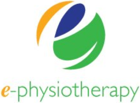Frozen Shoulder
Frozen shoulders generally occur between the ages of 40 and 60. The cause is not known but the capsule that surrounds the shoulder joint becomes inflamed, painful and gradually gets tighter. This stiffens the shoulder, hence reducing movement. As the condition continues, it becomes less painful, but the shoulder remains very stiff. It is thought [...]

